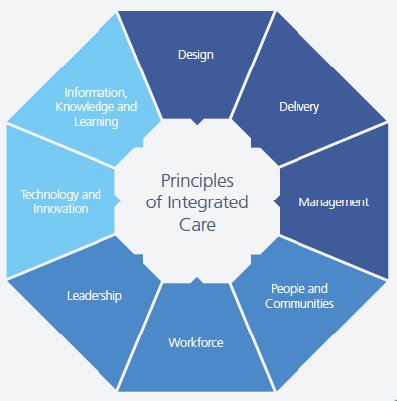In the realm of healthcare, particularly in drug rehab and addiction treatment, the most effective approach often involves a comprehensive blend of medical, holistic, and traditional therapies. This 360-degree approach aims to treat the individual as a whole, addressing not just the symptoms of the ailment but the underlying causes and the person’s overall well-being. This article explores how integrating these diverse therapies can create a more robust and effective care framework.
Understanding the 360-Degree Approach
A Multi-Faceted Strategy
This approach is grounded in the understanding that effective treatment isn’t one-dimensional. It combines medical interventions, traditional therapeutic methods, and holistic practices to address every aspect of an individual’s health: physical, mental, emotional, and sometimes even spiritual.
The Components of Comprehensive Care
Medical Interventions
Evidence-Based Medicine
Modern drug rehab centers incorporate evidence-based medical treatments to address the physical aspects of addiction and related conditions. This might include the use of medications to manage withdrawal symptoms, treat co-occurring disorders, or prevent relapse.
Holistic Therapies
Treating the Whole Person
Holistic therapies aim to bring balance and healing to the entire person. Practices such as yoga, acupuncture, and nutrition therapy work alongside medical treatments to support overall well-being, reduce stress, and improve mental health.
Traditional Therapies
Psychotherapy and Counseling
Traditional therapies like cognitive-behavioral therapy, group sessions, and individual counseling remain staples of addiction treatment. These methods help individuals understand the root causes of their addiction, develop coping strategies, and build a supportive community.
Integrating the Approaches for Individualized Care
Assessment and Personalization
A comprehensive care plan begins with a thorough assessment of the individual’s unique needs and circumstances. From there, a personalized treatment plan can be developed, integrating the most appropriate medical, holistic, and traditional therapies.
Continuous Evaluation and Adaptation
As individuals progress through treatment, their needs can change. Continuous evaluation allows the care plan to adapt, integrating new therapies or adjusting existing ones to ensure the treatment remains effective and responsive.
The Benefits of a 360-Degree Approach
Enhanced Effectiveness
By addressing all aspects of an individual’s health, this approach can enhance the effectiveness of treatment, leading to better outcomes and a lower chance of relapse.
Personal Empowerment
Comprehensive care empowers individuals by involving them in their treatment and recovery process. This can increase motivation, engagement, and a sense of ownership over their journey to wellness.
Long-Term Health and Well-being
This approach doesn’t just aim to treat the immediate issue; it seeks to equip individuals with the tools and knowledge they need to maintain long-term health and well-being.
Choosing the Right Facility
When considering a drug rehab facility, it’s essential to choose one that embraces a 360-degree approach to care. Look for centers like centers that offer a blend of medical, holistic, and traditional therapies and are committed to providing personalized, comprehensive treatment.
Conclusion: The Future of Comprehensive Care
The 360-degree approach represents the future of comprehensive care in addiction treatment and beyond. By integrating medical, holistic, and traditional therapies, this approach offers a more effective, empowering, and sustainable path to recovery and health. As healthcare continues to evolve, this integrative and holistic approach will likely become the standard, providing individuals with the complete, nuanced care they deserve.







![ExtraTorrents Proxy List For 2020 [100% Working Proxies To Unblock Extratorrents] ExtraTorrents Proxy List For 2020 [100% Working Proxies To Unblock Extratorrents]](https://www.troozer.com/wp-content/uploads/2020/08/extratorrent-cd-640x360-1-250x250.jpg)



